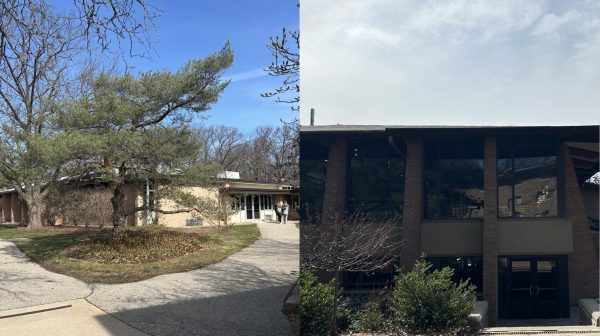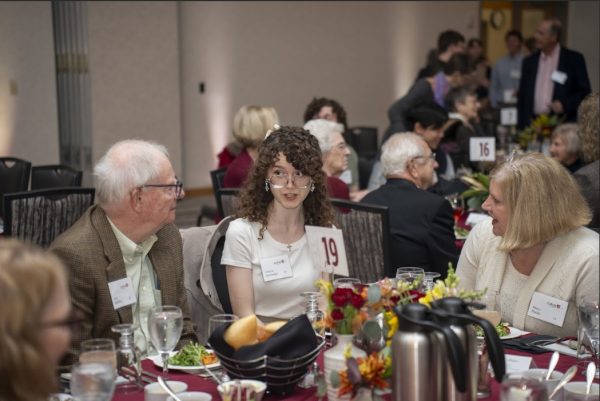Sexuality Series discusses purity culture and eroticism
Julia Postema-O’Donnell, sex therapist and Calvin alumna, brought discussion of purity culture and the humanity of being a sexual person, to Calvin last Thursday.
The lecture started with an exercise: take a notecard and write down your top two sexual experiences. After much giggling and revelry in the idea of sexual experiences, the attendees began writing.
After everyone had written something down, students discussed their initial responses to the exercise, including feelings of discomfort, anxiety and disbelief that this subject would even be brought up at Calvin.
Student in attendance Noah Keene said, “Overall, I liked the event. I think the history of the Church in four words is ‘good intentions, horrible execution,’ and nowhere is that more true than in the arena of sexuality.”
One of the main goals of the lecture was to define both eroticism and sex. Eroticism was defined as “the interplay of sexual arousal with the challenges of living and loving.” In light of this, all humans, as a core nature of their personhood and humanity, are erotic beings: we all live, we all love.
Sex was more difficult to define. Most students present had received some form of sex education or another, be it through public or private schools, the church, or from parents. According to responses, students had mostly been taught that sex is only penile-vaginal intercourse, which Postema-O’Donnell says leaves very little room for the acceptance or humanization of persons who do not have sex this way. According to Postema-O’Donnell, students need to adopt a new definition of sex, one that views sex in the general way of giving and receiving bodily pleasure in whatever way works for the parties involved.
Having a mindset like this will help disturb the “purity culture,” introduced and enforced by the white Evangelical church. Purity culture, as detailed by Postema-O’Donnell, teaches that sex is strictly for marriage, sex is to be heterosexual, and that women are responsible for controlling the sexual thoughts had by men. According to Postema-O’Donnell, the reason that purity culture is so harmful is because couples will build an unhealthy conception of what intimacy looks like. They wait until a certain time to find out how their bodies work, and build up unrealistic expectations of how intimacy will factor into their relationship.
This was shown to be prevalent at Calvin, as students shared experiences of RAs searching their rooms under suspicion of sexual activity. Postema-O’Donnell advocated that UnLearn Week include topics of healthy sexual lives so students can re-write the harmful narrative pressed by the purity culture.








